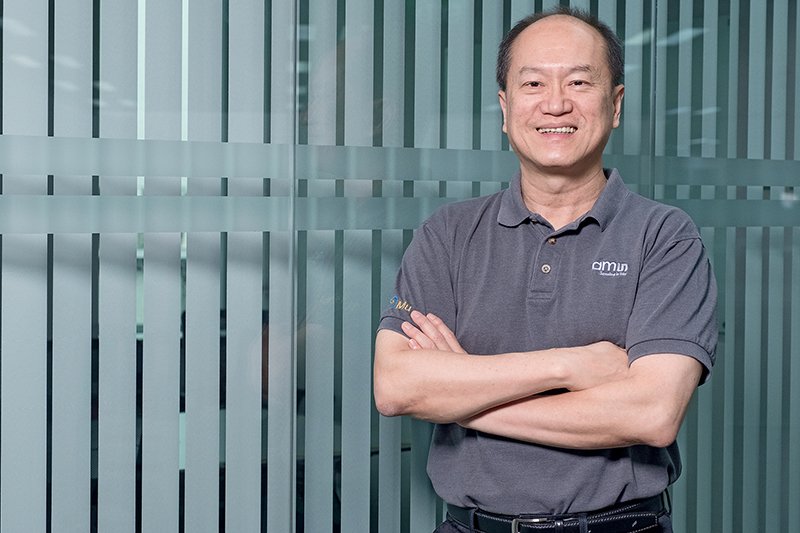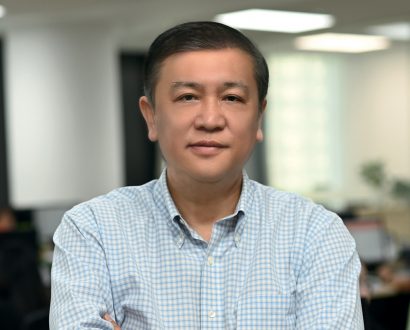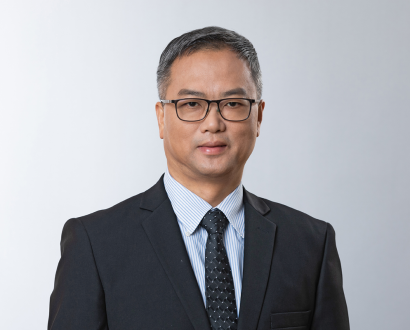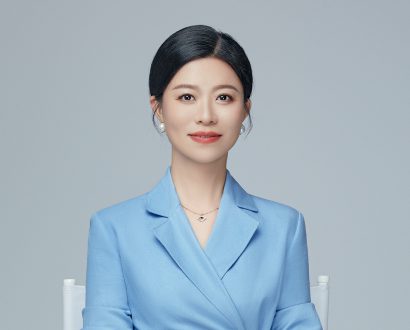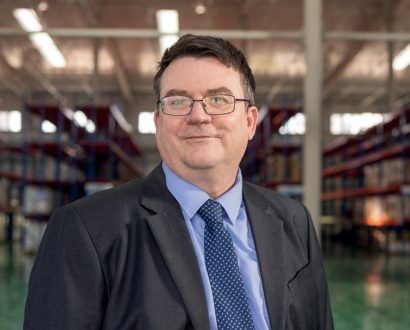“We believe that sensing is a fundamental part of being a human, whether it’s smell, sight, sound, taste or touch. And that’s what we’re trying to do as a company – emulate these senses through technology.
“We’re looking very far into the future, which is incredibly exciting. It makes waking up each morning to go to work exhilarating because we’re part of this enabler for the future, to help people do amazing things, like using advanced driver-assistance systems technology for driverless cars. On a daily basis, we’re paving the way to make everything more productive, more efficient, faster and less costly.”
From smartphones and mobile devices to smart homes, industrial automation, medical technology and connected vehicles, ams produces a vast range of sensor solutions to customers around the globe.
With 9,000 employees in more than 12 sales offices and 18 design centres across Europe, Asia and the US, serving more than 8,000 customers worldwide, the company has garnered a reputation as the indisputable industry leader. The best manufacturers in every corner of the planet rely on its expertise for advanced systems design.
ams products drive applications requiring small form factors, low power, high sensitivity and multi-sensor integration, and the company offers sensors, interfaces and related software for consumers in the communications, industrial, medical and automotive markets.
The company aims to be known as the “uncontested leader in optical solutions through bold investments in disruptive innovation and continuous transformation delivery, best-in-class profitability and growth” with a “passion for creating sensor solutions that make devices smarter, safer, convenient and more environmentally friendly”.
“ams started off as a very traditional, technology-focused company based out of Austria,” Soh tells The CEO Magazine. “It was a very focused company with very high aspirations. But what it has been trying to do is expand organically at the same time as looking at acquisition.
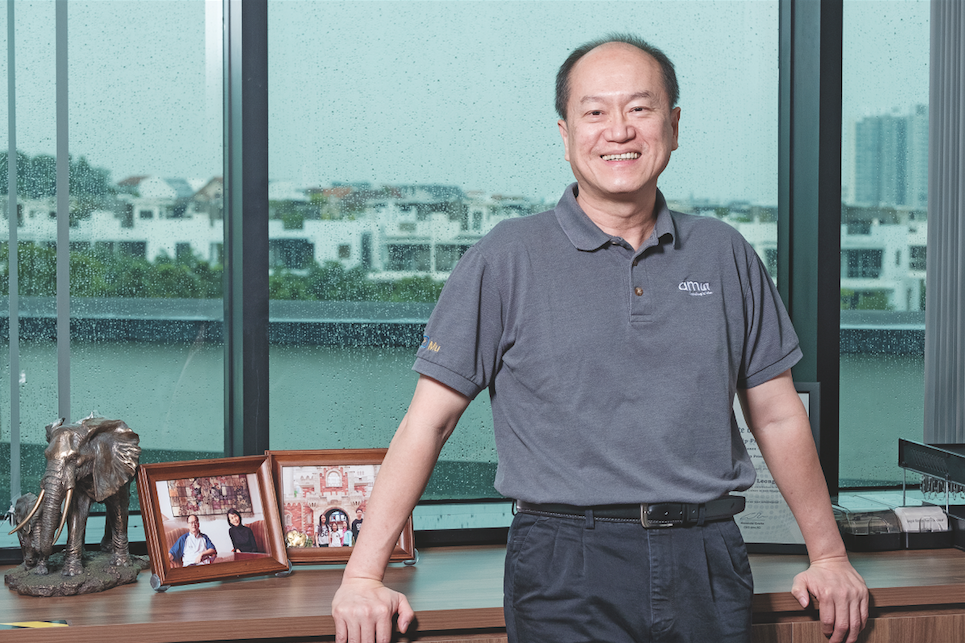
It acquires a company that’s already got a foothold, so that it will be a quick transition, at the same time as leveraging product sales to those customers – because they also need a lot of manufacturing excellence, systems, regulatory requirements and certification.
“The other thing that the company really focuses on is speed. Because we’re driven by technology, speed is essential – from the time we design or launch a product for the customer, to how quickly we can scale them up and go into mass production. So this was an element where I really was able to utilise my past expertise. I’ve also been heavily involved in the business development as well as running the global operation.”
A wealth of experiences
Prior to joining ams, Soh worked across a range of industries in an array of different roles. Having graduated from Texas Tech University in 1986 with both a Bachelor of Computer Science and a Master of Science in Industrial Engineering, Soh sharpened his teeth as a Plant Engineer at Baxter Healthcare before taking his knowledge from the US back to Singapore as a Senior Manager at Seagate Technology.
Soh explains that in hindsight, he believes his timing for the move couldn’t have been better. “In the mid 1980s, a lot of US companies and European companies were migrating their mass volume production to this part of the world – the West was looking East in terms of manufacturing,” he recalls.

“And during that time computers boomed, just after the recession. So I was at the right place at the right time. “Having experience with both schools of thought and having spent time in both the East and the West has meant that my strategic approach towards operations and how I look at managing and growing the business is very Western. But also being Asian, we’re generally very technical and very hardworking. I had the best of both worlds.”
By the time Soh was appointed Senior Vice President and General Manager of ams in 2019, he’d been Director of the Supply Chain for APAC at YORK International; General Manager and SEA and APAC Operations Director at Brady Corporation; Director of Quality and Operational Excellence at Nokia in China; Senior Director and General Manager of Flextronics in Malaysia; and President and Managing Director of STATS ChipPAC in China.
“I was able to use all of that varied experience and apply it to ams,” he reflects. “Having been in semicon and OEM at HVACR, as well as at a medical company, they wanted to bring in somebody like myself who has worked with a diverse amount of people, seen customer front-end engagement and understands the expectations that relate to different locations, with a computer-based and industrial engineering background.
It makes waking up each morning to go to work exhilarating because we’re part of this enabler for the future, to help people do amazing things.
“Every customer has different expectations of the supply chain in terms of delivery, quality issues, recovery, how you avoid disruptions and, if there is a disruption, how well you mitigate that – so there is a strategic approach to that.
“Over the previous 20-odd years, I had been running a business with PNL responsibility, setting up new greenfield or brownfield facilities, and penetrating different geographies – I have developed India, I have developed China, and even the Eastern European business.
If you protect your people, ultimately the outcome is that you protect the revenue.
“It also put in a standard manufacturing strategy that some of the products can be more commoditised, some of them you can outsource to partners – we’ve got specialised partners to build for us, and handle testing and things like that. So it’s this combination of internal and external manufacturing with internal and external development.”
Implementing change
Upon arriving at ams, one of the first things Soh did was use his prior experience to enhance the existing governance and cultivate a more robust company culture. “Of course, it is a journey we are taking together,” he concedes.
“But setting up governances to respond to different needs, whether it was about quality, responsiveness, productivity, costs or the people involved was a real priority for me.
“When ams hired me, one of the major values I brought to the table was really strengthening the culture. As a company that does a lot of mergers and acquisitions, you’re not just adding in their technology capability or lateral market, but also bringing in a new group of people who are all very diverse, and culturally may not be the same as us. So a clear overarching culture would ensure the consolidation of these different people from different backgrounds.
“At the end of the day, our number one priority is making sure that ams is a great place to work. We’ve brought in consultants to guide our leaders and are really focused on appreciating how different cultures think, so that we can understand the team dynamics. Cultural integration is a big challenge because if we acquire a 100-year-old company, there’s a good chance that while they may share a few of the same core values, some of them might also be completely different. We live and breathe the ams core values and leadership principles.”
Collaboration is key
Also vital to the success of the entire operation is the reliance on secure partnerships along each and every step of the journey, from design through to execution and distribution, Soh reveals.
“We have a very close-knit ecosystem,” he says. “There are different collaboration levels because we manufacture some products internally and others externally. When we manufacture internally, we have better control to launch a product, so the collaboration with suppliers is very detailed, and specifically designed for the end customer. Together, we need to understand what it takes to develop the product and where the technology comes from.
“It’s not just in terms of technology processes either; we talk about asset availability, equipment – it’s extensive. If it’s automotive, it’ll be even longer – with the sub-component, what we call the wafer level being the start of the collaboration. So we need strong partnerships along every step of the supply chain, from the time developing to making, fulfilling and distributing.
“We also need suppliers for repairs and technology development, so we can reuse our platform, reuse our assets, reuse our people’s capabilities, so we don’t need to reinvent everything along the supply chain each time, which in turn means our launch speed is faster and the cost is better. Dealing with suppliers that we already know, trust and have a great relationship with makes everything seamless from start to finish.”
Best practice
The company’s corporate social responsibility policy sees ams striving to actively comply with “local and international laws and [adhere] to ethical standards” with the aim that its “business actions encourage a positive impact on the environment, consumers, employees and communities”.
The company believes innovation and the environment can go hand in hand. As a result, ams is certified in accordance with the ISO 14001 environmental management system. This is a huge achievement and tangible proof of this commitment.
In addition, ams has pledged to uphold the 2009 United Nations Global Compact, a strategic policy initiative for businesses that want to align their operations with 10 universally accepted principles across issues of human rights, labour, the environment and anti-corruption – and act with transparency and accountability at every step.
Employee safety
Unfortunately, like most businesses across the globe, ams was not immune to the effects of COVID-19. Soh admits that while it has undoubtedly been a challenge, the company reacted quickly and decisively.
“If you look at the pandemic, to me, the main issue has been the disruption of our network, because we run such a global business,” Soh explains. “We’ve had to work a lot with our suppliers and partners to ensure that they’re also protecting their people and protecting the revenue, so that we can continue to build strength together and guarantee continuity in our product line.
“There are certain shipping routes, whether they’re air, sea or road, that require a lot of coordination, so the disruptions to these logistics capabilities have been difficult – whether it’s raw material coming in or finished goods going out, we have components moving all over the world.
“There’s a lot of business continuity planning as far as those things are concerned. We’ve also had various communities locked down, so the availability of our manpower became restricted, especially in manufacturing plants. This is critical, because we need the operators and the direct labour to be in the factory producing the goods. We’ve had to devise strategies and put initiatives into place to safeguard the company, regardless of how the pandemic is complicating things.”
However, Soh explains that by guaranteeing the safety of its employees first and foremost, the company has been able to emerge relatively unscarred from the experience. “At the highest level, I’m looking at where we implement board-based strategies to ensure we can protect our people,” he says.
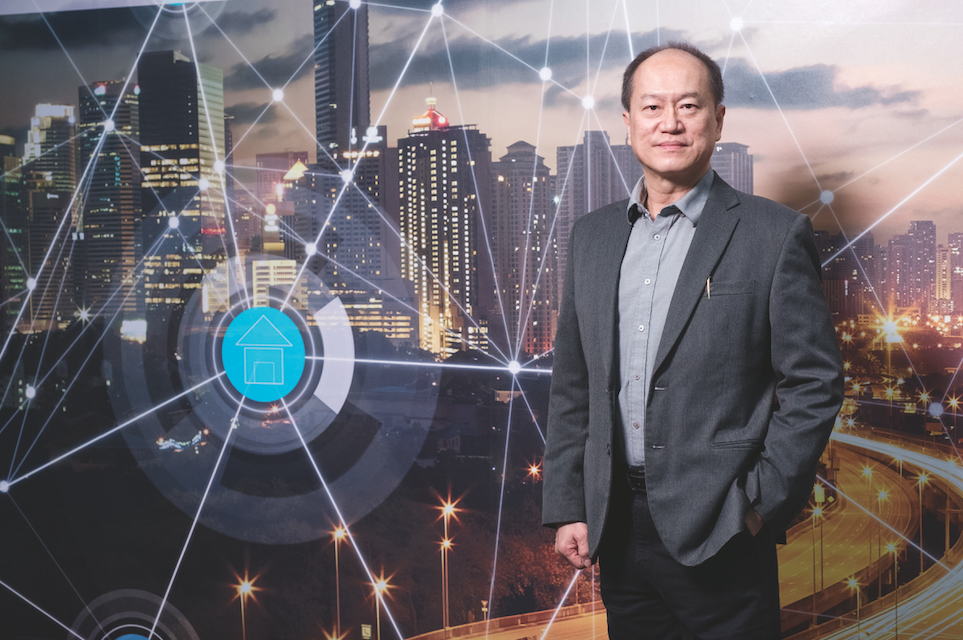
“Because if you protect your people, ultimately the outcome is that you protect the revenue. “We’ve put a lot of precautionary actions in place, from demarcating the office, taking temperatures, ensuring social distancing, putting in UV filtration in our air intake and plenty of sanitisation. We have safe distancing ambassadors and safety officers. By putting in a lot of energy and investing in protecting our people, every employee knows that when they come to work, they are safe. By knowing that the company is doing everything possible to protect them, it also means that in turn, they will feel more passionate and happier to contribute. We’ve found that to be very successful.”
Creative problem-soling
Further complicating things is the fact that some employees live across the border from the neighbouring country in which they work each day. Soh explains that when lockdown measures and border closures were put in place, this meant ams had to work out yet another solution.
“We have manufacturing partners in Malaysia and Singapore, so when the borders shut, they couldn’t travel to work on a daily basis,” Soh says.
“Right now, many industries are experiencing downturns, including the construction, airline and service industries. So there are a lot of resources out there unable to be utilised.
“One solution is for us to recruit those resources, partner with companies and take their people, give them expedited training, and put them into critical stations after training. That way we’re providing them with a livelihood. Our life and livelihood initiative has been in place for almost a year now.”
In a bid to also extend support to the wider community, ams devised an imitative to redeploy employees from Scoot Airlines (a division of national carrier Singapore Airlines) whose jobs had been put on hold as a result of the pandemic.
For a minimum period of three months, over 100 cabin crew were given alternative work at ams to supplement their incomes as well as gain new knowledge and skills, at the same time enabling Scoot to retain its staff.
“A major part of my role focuses on people governance, and one of the things within that is the need consider our corporate social responsibility,” Soh says.
At the end of the day, our number one priority is making sure that ams is a great place to work.
“During the time that I’ve been with ams, I’ve reached out to the local governmental body regulation, so the company is basically connected, as part of the people governance, to all of the governmental bodies, such as the Ministry of Health, Ministry of Manpower and Ministry of Sustainability and the Environment.
“So what happened with Scoot was ams had support from the Economic Development Board, and the Ministry of Manpower on our first cross-industry collaboration with an aviation business in the effort to cope with COVID-19.” Scoot approached ams in April and Soh describes the project as a “win–win” situation, adding that while the new recruits may have come from a different industry, “their robust service background makes them adaptable to new situations. We have also found them to be very meticulous, solution-oriented and goal-driven.”
“In addition, we recently collaborated with the National University of Singapore’s (NUS) Faculty of Science and Faculty of Engineering under the SGUnited Scheme to develop a uniquely ams training program to upgrade and increase our engineers’ knowledge of dedicated technology.
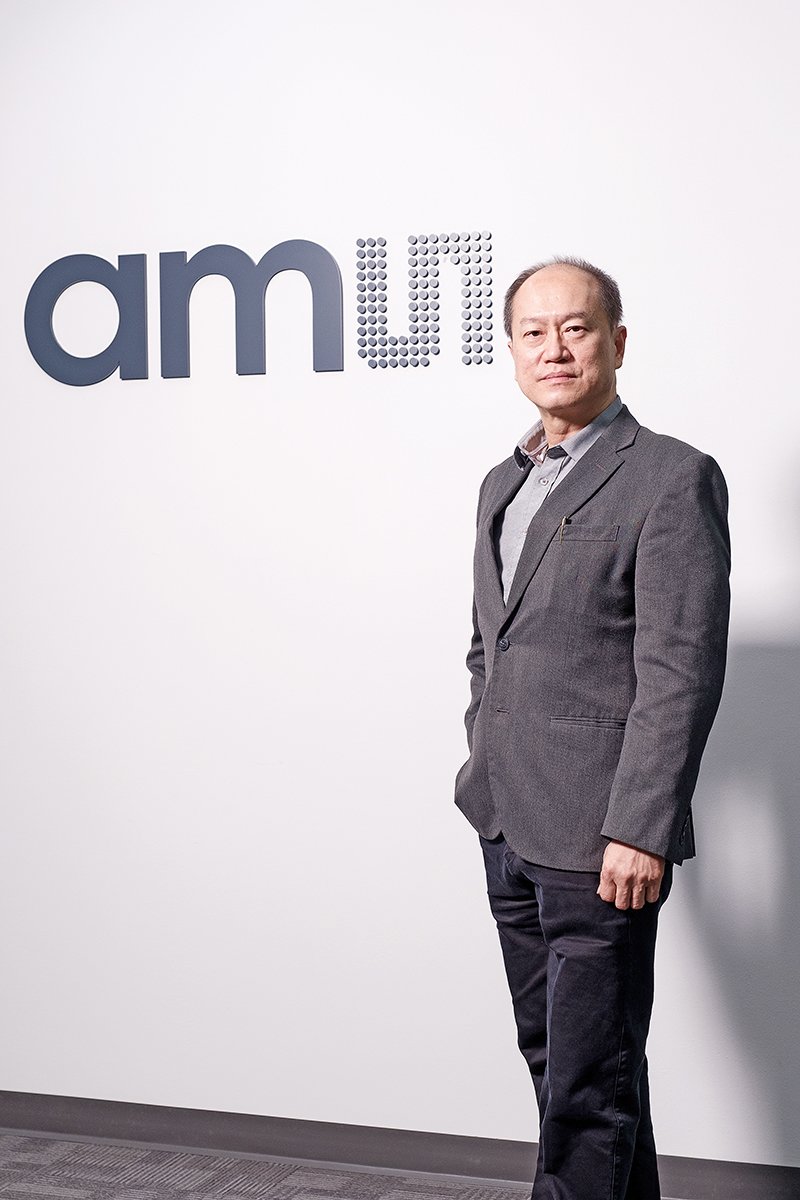
“Not forgetting to give back to the community, during 2020 ams contributed to the healthcare workers at Singapore General Hospital and Tan Tock Seng, as well as the migrant workers through the Migrant Workers’ Centre.”
Now, even as the world eases into this new mode of operating, Soh is adamant that irrespective of whatever fresh challenges may be on the horizon, ams will continue supporting the wider community and enhancing the world with its work.
Because at the end of the day, that’s why Soh is happy to go to work each day: “It’s amazing to know that I’m contributing to a better future,” he smiles.
Proudly supported by:
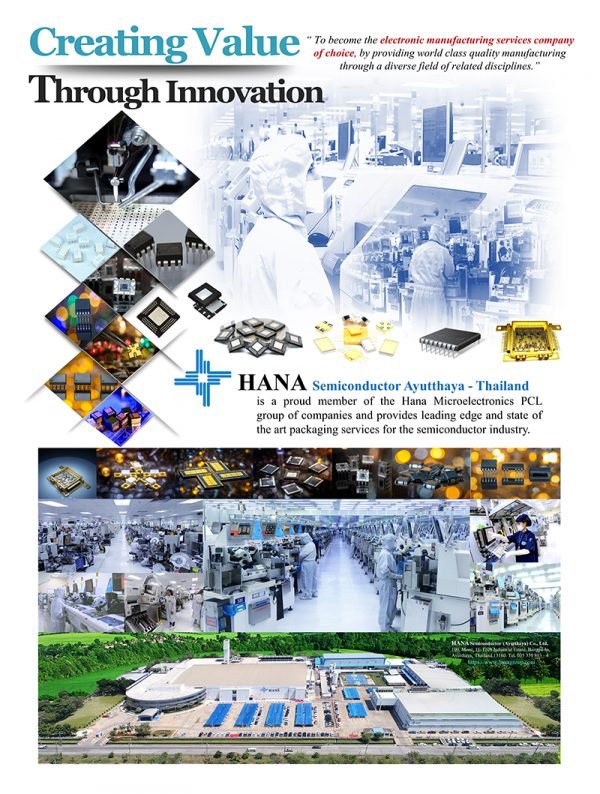
Hana
摄影 Yew Kwang

